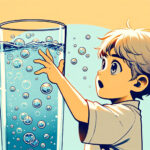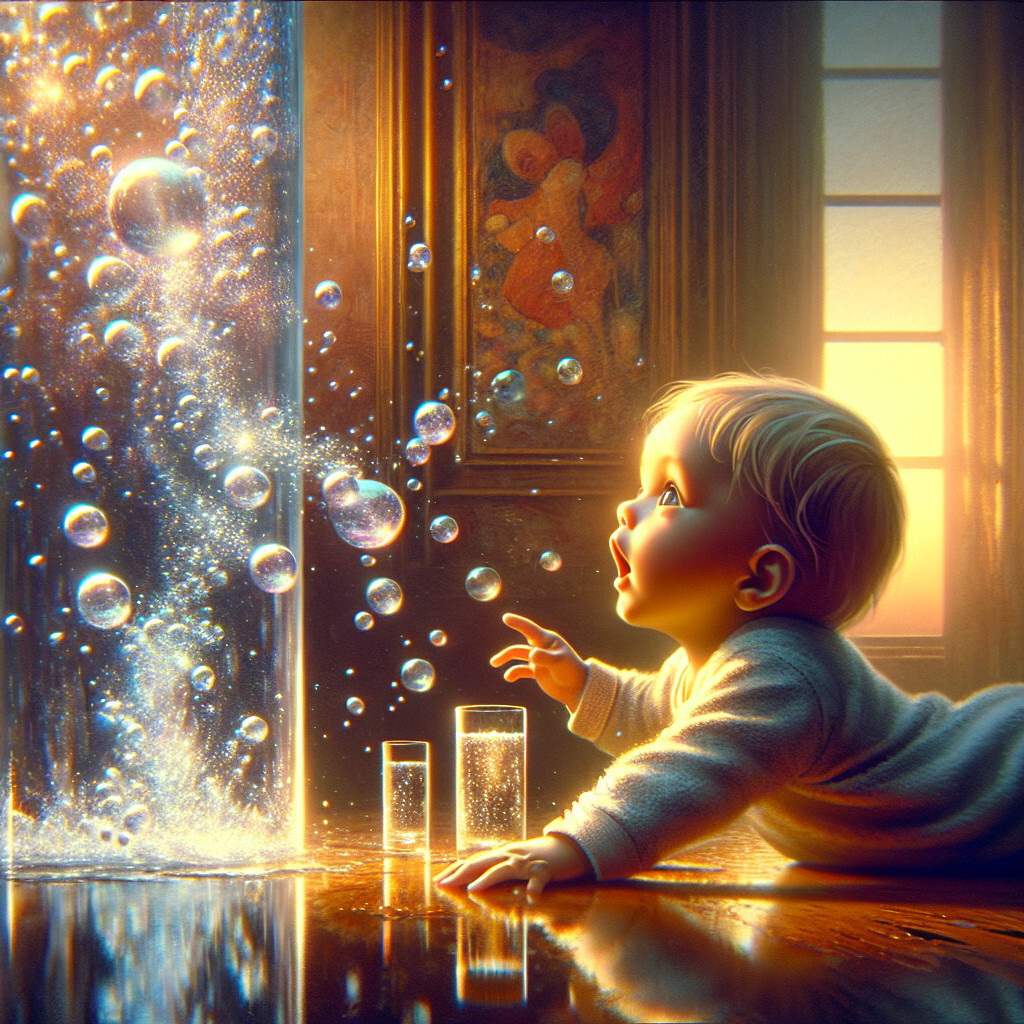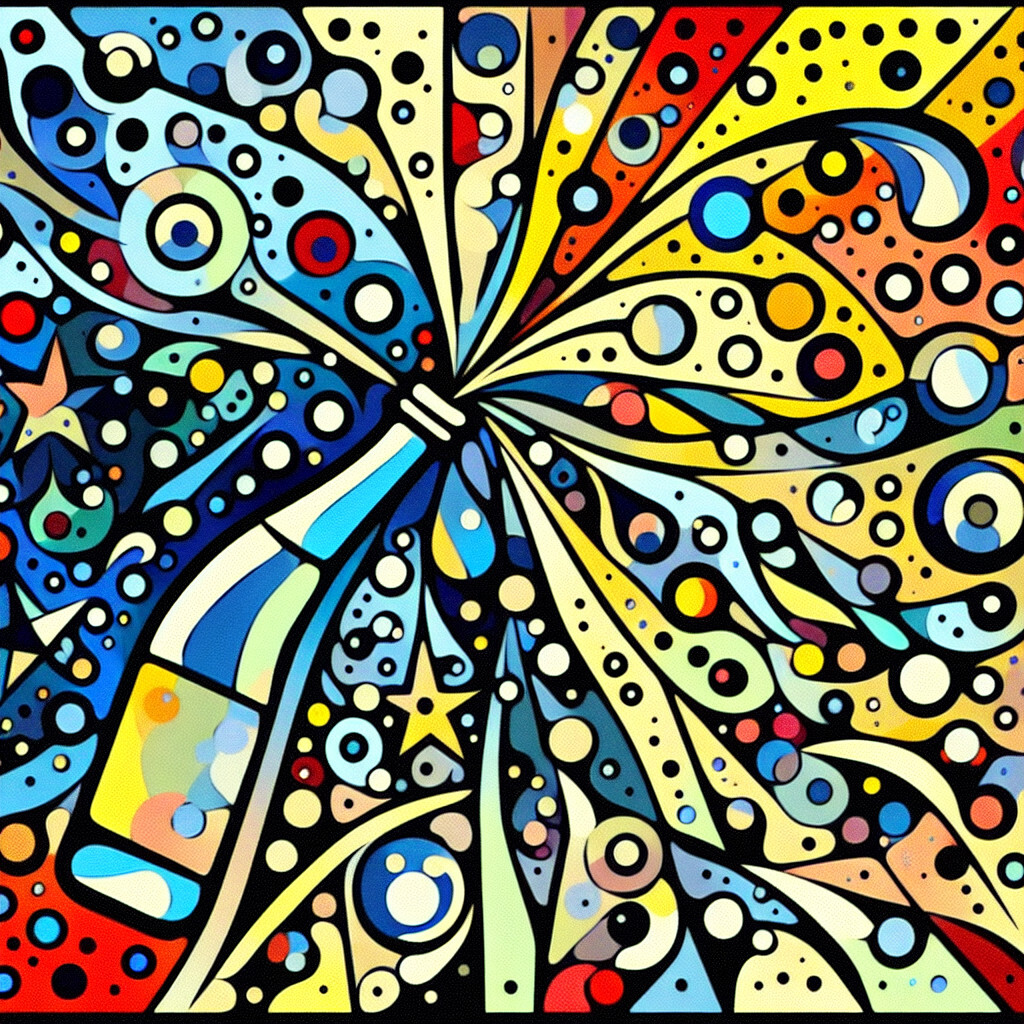-
Table of Contents
“Sparkling Hydration: Questioning the Bubbles for Your Baby’s Health.”
Introduction

Introducing the topic of whether babies can have sparkling water involves discussing the potential effects and considerations of giving this type of beverage to infants. Sparkling water, also known as carbonated water, is a popular drink among adults, but its suitability for babies is a subject of debate. While it’s not harmful per se, it contains bubbles caused by carbon dioxide, which can cause gas and bloating in babies. Furthermore, it lacks the necessary nutrients found in breast milk, formula, or even plain water that are essential for a baby’s growth and development.
Understanding the Effects of Sparkling Water on Babies
As parents, we are often faced with numerous questions about what is safe and healthy for our babies. One such question that has been gaining attention recently is, “Can my baby have sparkling water?” This question arises from the increasing popularity of sparkling water among adults, and the curiosity to know if it can be safely introduced to babies.
Sparkling water, also known as carbonated water, is simply water into which carbon dioxide gas has been dissolved under pressure. This process gives the water its characteristic bubbles and fizz. While it is a refreshing alternative to still water for adults, it’s important to understand the effects of sparkling water on babies before introducing it to their diet.
Firstly, it’s crucial to note that the American Academy of Pediatrics (AAP) recommends exclusive breastfeeding for the first six months of a baby’s life, followed by the introduction of solid foods while continuing breastfeeding until at least the baby’s first birthday. Water, whether still or sparkling, is generally not necessary for babies under six months as breast milk or formula provides all the hydration they need.
Once a baby is six months old and begins eating solid foods, small amounts of water can be introduced. However, the AAP advises against giving babies carbonated beverages, including sparkling water. The primary reason for this is that the carbonation in sparkling water can cause gas and bloating in babies, leading to discomfort and fussiness. Babies have immature digestive systems that may struggle to process the bubbles in sparkling water, resulting in these unpleasant symptoms.
Moreover, the acidity in sparkling water can potentially harm a baby’s developing teeth. Although sparkling water is generally less acidic than other carbonated drinks, it still has a lower pH than regular water. Regular exposure to acidic drinks can lead to dental erosion, even if the drink contains no sugar. Given that baby teeth are more susceptible to decay than adult teeth, it’s best to avoid any potential risks.
Another point to consider is that while sparkling water is a calorie-free beverage for adults, it may not be the most beneficial drink for babies. Babies have high nutritional needs for their size, and every sip they take should ideally be providing them with necessary nutrients. Water can fill up a baby’s small stomach, leaving less room for nutrient-dense breast milk or formula.
In conclusion, while sparkling water is a safe and healthy choice for adults, it is not recommended for babies. The potential for gas, bloating, and dental erosion, coupled with the lack of nutritional value, makes it a less than ideal choice for your little one. Instead, stick to breast milk or formula for babies under six months, and introduce small amounts of regular water once they start eating solid foods. As always, if you have any concerns or questions about your baby’s diet, it’s best to consult with a pediatrician or a registered dietitian. They can provide personalized advice based on your baby’s specific needs and development.
Can Sparkling Water Be Included in Your Baby’s Diet?
As parents, we are always concerned about the health and well-being of our children, especially when it comes to their diet. One question that often arises is whether it is safe to include sparkling water in a baby’s diet. This article aims to provide a comprehensive answer to this question, based on scientific evidence and expert opinions.
Sparkling water, also known as carbonated water, is a popular beverage among adults. It is essentially water into which carbon dioxide gas has been dissolved under pressure, resulting in a fizzy drink. While it is a refreshing alternative to still water for adults, the question of its suitability for babies is a matter of debate.
The primary concern with giving sparkling water to babies is the carbonation. The bubbles in sparkling water are caused by carbon dioxide, which can lead to gas and bloating. Babies have immature digestive systems that may struggle to handle the excess gas produced by carbonated beverages, potentially causing discomfort and fussiness. Moreover, the sensation of carbonation might be too strong for a baby’s sensitive palate, causing them to reject the drink.
Another point to consider is the acidity of sparkling water. Carbonated water has a lower pH than regular water, making it more acidic. While this is not a problem for adults, it could potentially irritate a baby’s delicate digestive system. Additionally, frequent exposure to acidic beverages can harm a baby’s developing teeth. Although sparkling water is less acidic than other carbonated drinks like soda, it is still more acidic than regular water.
Furthermore, sparkling water does not offer any nutritional benefits over regular water. Babies need a diet rich in nutrients to support their rapid growth and development. While sparkling water is not harmful in itself, it should not replace nutrient-dense beverages like breast milk or formula, which should be a baby’s primary source of hydration and nutrition.
However, it’s important to note that not all sparkling waters are created equal. Some brands add sodium, artificial sweeteners, or other additives to their products. These ingredients are not suitable for babies and should be avoided. If you choose to give your baby sparkling water, ensure it is pure, with no added ingredients.
In conclusion, while sparkling water is not inherently harmful to babies, it may not be the best choice due to potential digestive discomfort, its acidic nature, and lack of nutritional value. As always, it is recommended to consult with a pediatrician or a registered dietitian before introducing any new foods or beverages into your baby’s diet. They can provide personalized advice based on your baby’s age, health status, and nutritional needs. Remember, every baby is unique, and what works for one may not work for another. Therefore, it is always best to err on the side of caution when it comes to your baby’s diet.
The Pros and Cons of Giving Sparkling Water to Babies
As parents, we are constantly seeking the best for our children, especially when it comes to their nutrition and hydration. One question that often arises is whether it is safe to give babies sparkling water. This article aims to provide a comprehensive understanding of the pros and cons of giving sparkling water to babies.
Sparkling water, also known as carbonated water, is a popular beverage choice among adults. It is essentially water into which carbon dioxide gas has been dissolved under pressure, resulting in a fizzy drink. While it is a refreshing alternative to still water for adults, its suitability for babies is a topic of debate.
On the positive side, sparkling water is free of sugars and artificial sweeteners, making it a healthier choice compared to sugary drinks or juices. It is also a source of hydration, which is essential for babies, especially in hot weather or when they are unwell. Some parents might consider giving their babies sparkling water as a novel way to encourage them to drink more fluids.
However, despite these potential benefits, there are several reasons why sparkling water may not be the best choice for babies. Firstly, the carbonation in sparkling water can cause gas and bloating, leading to discomfort and potential upset for the baby. Babies have immature digestive systems that may struggle to handle the extra gas produced by the carbonation.
Secondly, the acidity in sparkling water could potentially harm a baby’s developing teeth. Although sparkling water is less acidic than other carbonated drinks, it is more acidic than regular water. Regular exposure to acidic drinks can erode tooth enamel, leading to dental problems in the future.
Thirdly, while sparkling water is a source of hydration, it should not replace breast milk or formula for babies under six months old. These provide essential nutrients that water does not. For older babies, while water can be introduced, it should be in addition to their regular milk feeds and not as a replacement.
Lastly, introducing sparkling water at a young age could potentially set up a preference for fizzy drinks. This could lead to a higher consumption of unhealthy carbonated beverages in later life, which are often high in sugar and can contribute to obesity and other health problems.
In conclusion, while sparkling water is not harmful in small amounts, it may not be the best choice for babies due to potential digestive discomfort, dental concerns, and the risk of developing a preference for fizzy drinks. As always, it is recommended to consult with a healthcare professional or pediatrician before introducing any new foods or drinks into your baby’s diet. They can provide personalized advice based on your baby’s age, health, and developmental stage.
Remember, every baby is unique and what works for one might not work for another. As parents, it’s our responsibility to make informed decisions about our children’s nutrition and hydration, always prioritizing their health and well-being.
Debunking Myths: Is Sparkling Water Safe for Babies?
As parents, we are often faced with a myriad of questions concerning the health and well-being of our children. One such question that has been a topic of debate in recent years is, “Can my baby have sparkling water?” This article aims to debunk myths and provide clarity on whether sparkling water is safe for babies.
Sparkling water, also known as carbonated water, is a popular beverage choice among adults. Its refreshing taste and fizzy sensation make it an appealing alternative to still water. However, when it comes to babies, the suitability of sparkling water is not as straightforward.
Firstly, it’s important to understand what sparkling water is. It’s essentially water into which carbon dioxide gas has been dissolved under pressure, resulting in a fizzy drink. While it may seem harmless, the carbonation process can potentially cause issues for babies. The bubbles that make sparkling water so enjoyable for adults can lead to discomfort and gas in babies. Their digestive systems are still developing and may not be able to handle the gas produced by the carbonation.
Moreover, sparkling water is often more acidic than regular water due to the carbonation process. This acidity can potentially harm a baby’s teeth. Although baby teeth are temporary, maintaining their health is crucial as they play a significant role in helping your child chew food properly and speak clearly. They also hold space in the jaws for permanent teeth. Therefore, it’s essential to protect these teeth from any potential harm, including the acidity from sparkling water.
Another point to consider is that while sparkling water is typically free of sugars and artificial sweeteners, some flavored varieties do contain these additives. These can contribute to tooth decay and unhealthy weight gain. Therefore, if parents choose to give their babies sparkling water, it’s crucial to ensure it’s unflavored and free of any additives.
However, it’s important to note that the American Academy of Pediatrics (AAP) recommends that babies under six months should only consume breast milk or formula. After six months, small amounts of water can be introduced, but the primary source of hydration should still be breast milk or formula. The AAP does not specifically address sparkling water, but given the potential issues, it’s advisable to stick to regular water when introducing your baby to this new beverage.
In conclusion, while sparkling water is not necessarily harmful to babies, it may cause discomfort due to the carbonation and potentially harm their teeth due to its acidity. Additionally, flavored varieties may contain sugars and artificial sweeteners that are not suitable for babies. Therefore, it’s best to err on the side of caution and stick to regular water for your baby. As always, if you have any concerns or questions about your baby’s diet, it’s best to consult with a pediatrician or a registered dietitian. They can provide personalized advice based on your baby’s specific needs and development.
Q&A
1. Question: Is it safe for my baby to drink sparkling water?
Answer: No, it’s not recommended for babies to drink sparkling water. It contains carbonation and acids that can harm their sensitive digestive systems.
2. Question: Can sparkling water cause any harm to my baby’s teeth?
Answer: Yes, the carbonation in sparkling water can potentially harm a baby’s developing teeth by eroding the enamel.
3. Question: Can I use sparkling water to prepare my baby’s formula?
Answer: No, it’s not advisable to use sparkling water to prepare baby’s formula. The carbonation can cause discomfort and bloating.
4. Question: At what age can my child start drinking sparkling water?
Answer: It’s generally recommended to wait until a child is at least 2 years old before introducing sparkling water, but it’s best to consult with a pediatrician.
Conclusion
In conclusion, it’s generally not recommended to give your baby sparkling water. The carbonation can cause discomfort in their little tummies and it doesn’t offer any nutritional benefits. It’s best to stick with breast milk, formula, or plain water.





